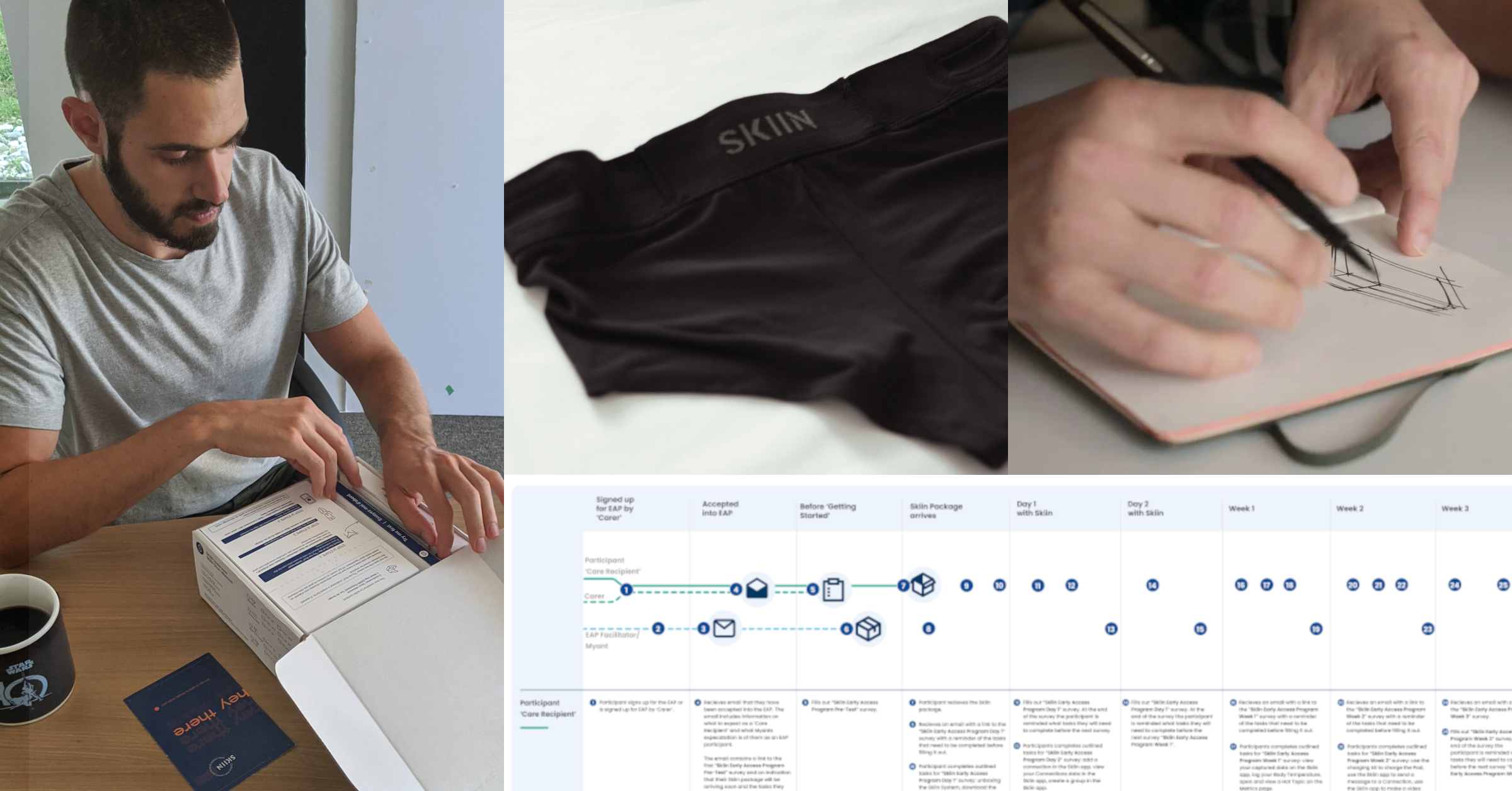CSMC-N102 - Ideation + Prototyping for Human-Centred Design Micro-credential
Course Description

Ideation + Prototyping is the second micro-credential in the Human-Centred Design Series. This micro-credential builds on the observations and research gathered in Empathy + Social Insight for Human-Centred Design Micro-credential. Students will explore design principles, the cycle of user research to validate ideas, and how to use iterative design with constraints. Students will develop a digital or physical prototype. This micro-credential explores how to identify and evaluate complex challenges and opportunities at the intersection of design, technology, and social theory.
LEARNING OBJECTIVES
- Create storyboards, flows, and visual designs,
- Plan for inclusive and accessible design,
- Present design concepts to a team, then discuss and integrate feedback,
- Conduct user testing, collect feedback, apply new findings to update assumptions,
- Apply transversal (cross-domain) attitudes and skills,
- Apply trans-disciplinary collaboration skills to co-create a single design,
- Employ design thinking skills and iterative problem-solving skills,
- Evaluate inclusive and accessible practices and articulate their value,
- Practice emotional Intelligence to inform user focused design.
HUMAN-CENTRED DESIGN SERIES
Empathy + Social Insight for Human-Centred Design Micro-credential
Ideation + Prototyping for Human-Centred Design Micro-credential
User Testing + Launch for Human-Centred Design Micro-credential
*This micro-credential is approved for OSAP assistance. Please visit the Financial Aid and Awards website for more details about the eligibility criteria and application process.
Earning Your Micro-credential Badge
As part of the modules in each micro-credential, you will complete assignments and exercises outlined in each micro-credential. These build towards the required evidence for each micro-credential that is submitted at the end of the micro-credential modules.
Successfully demonstrated application the key outcomes as part of the required evidencing will be recognized with a digital badge for the specific micro-credential. A link to the badge will be sent via email that can be added to resumes and posted on social media platforms.
What is a micro-credential?
Micro-credential is a new model that uses short, focused credentials to verify mastery of a skill or competency, and is designed to target high-demand skills, leading to faster hiring.
The process offers a digital credential, which is the official certification of the acquisition of an individual’s skills or capabilities. It is awarded in a digital form, which is verified, secure and shareable with peers, employers and educational providers.
Why micro-credentials now?
Micro-credentials can be used to recognize both vertical and transversal skills. Coupled with the in-depth learning obtained in a field of study, micro-credentials can be used to present a more holistic view of an individual’s abilities and achievements.
In today’s fast-changing workforce and emerging gig economy, a nimble recognition system is essential for both professionals and employers, who are increasingly moving towards skill or competency-based hiring.
To learn more about micro-credentials, please visit the eCampusOntario website.
Recommended Prerequisites
CSMC-N101 - Empathy + Social Insight for Human-Centred Design Micro-Certification, or equivalent experience.
Applies Towards the Following Certificates
- Business Skills for Creative Professionals Certificate : Qualifying Courses
- Design, Technology, and Fabrication Skills Certificate : Qualifying Courses
- Human-Centred Design Skills Certificate : Required Courses
- Ideation + Prototyping for Human-Centred Design Micro-credential : Qualifying Courses
- User Experience (UX) Design and Development Skills Certificate : Qualifying Courses




